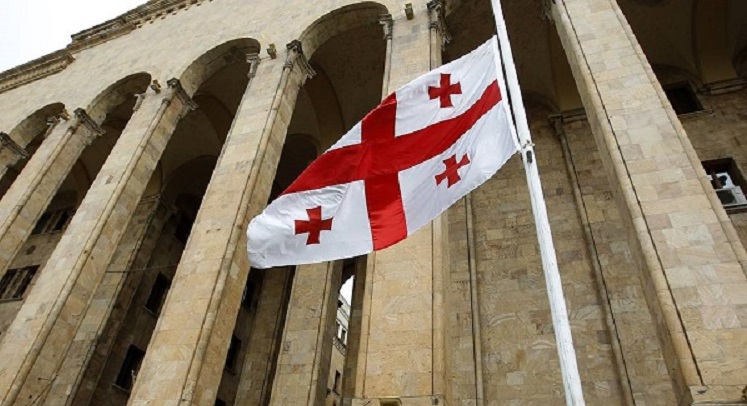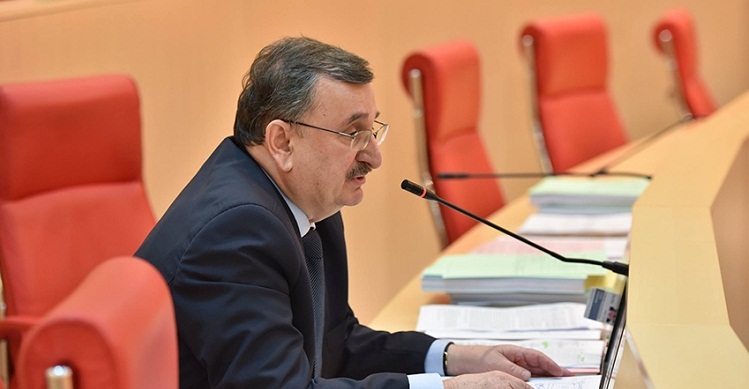Parliament passes election bill in 2nd reading. UNM, European Georgia opposition absent

Parliament passed the election bill in its second reading with 115 votes. 113 votes were mandatory to pass the bill. Photo: GHN.
The Georgian parliament has passed the election bill in its second reading earlier today, with 115 MPs in the 150-member parliament voting in favour.
The United National Movement and the European Georgia opposition parties, who support the amendments, refused to participate in the vote as they demand the release of co-founder of opposition-minded TV channel Mtavari Arkhi Giorgi Rurua.
They earlier urged the ruling party to ‘fully abide by the March 8 election agreement,’ mediated by the diplomatic corps, and release Rurua, otherwise they would not have voted for the bill.
Ruling party MP Irakli Kobakhidze has accused the opposition of breaking the March 8 agreement after today’s votes, stating that the ‘opposition has once again proved they are destructive.’
The UNM MP Roman Gotsiridze said that the amendments, which ensure more proportional elections for this autumn, ‘will not be fully legitimate if they are passed without the opposition.’
He once again called upon the ruling party to release Rurua.
 UNM MP Roman Gotsiridze says that the bill 'to be fully legitimate', it needs the opposition's support. Photo: parliament of Georgia press office.
UNM MP Roman Gotsiridze says that the bill 'to be fully legitimate', it needs the opposition's support. Photo: parliament of Georgia press office.
The bill reads that 120 seats in parliament will be distributed based on the votes received in proportional elections, while remaining 30 per the votes received in majoritarian elections only for the 2020 elections.
According to the Georgian constitution the country is scheduled to transfer to a fully proportional electoral system starting from 2024.
During the June protests of 2019 the ruling party promised to hold the 2020 elections per a fully proportional system.
However, the bill was rejected by parliament in November 2019 as many of the ruling party majoritarian MPs refused to vote for it.
The opposition accused the ruling party of ‘deliberately rejecting the bill’ and took to the streets.
Thanks to the involvement of the diplomatic corps in the spring the ruling party and the opposition agreed how to hold the 2020 elections.
Only the third reading, which mostly concerns technical issues, is left for the final approval of the bill.
At least 113 votes are mandatory for the approval of the bill.
 Tweet
Tweet  Share
Share